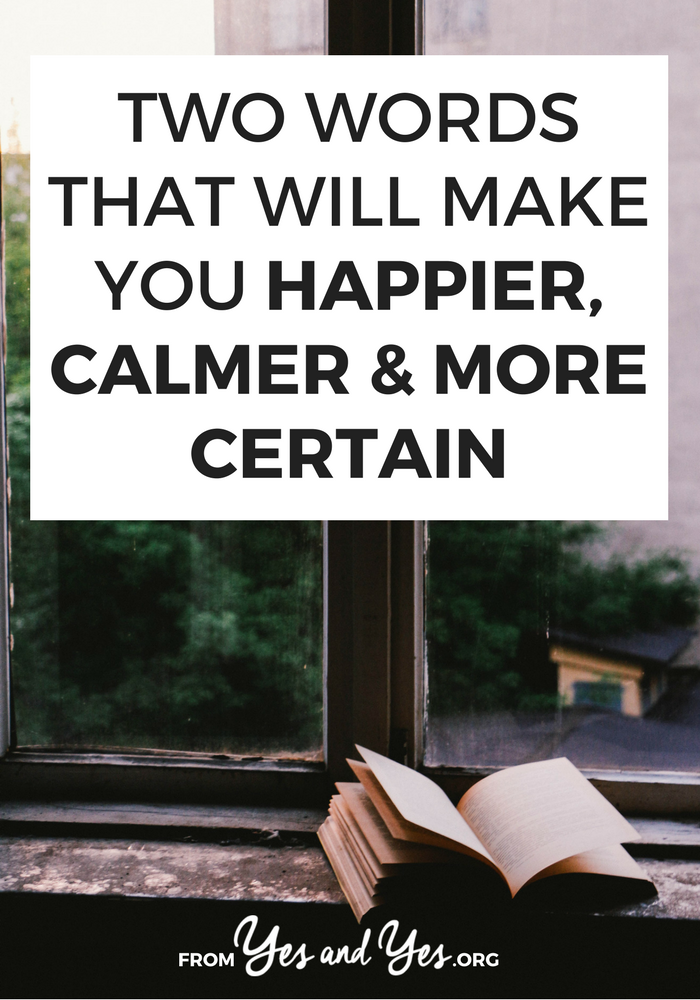
“Well, I’m certainly happy to take this to the tenant advocacy group if need be,” I say tartly. I tap my finger meaningfully on a highlighted section of my lease and raise my eyebrows.
It’s 2011 and I’m tangling with my landlord. He’s trying to make me cover the cost of repairing a phone jack that didn’t work when I moved in (?!?). I’ve pulled the appropriate paperwork, researched my options, and generally made him rue the day he messed with the blonde in 7A.
If you need someone take concerns to HR, call the president of the condo board, or convince your boss you deserve a raise, I am that someone.
(I mean, just as an aside, I don’t think they let friends negotiate raises but you see where I’m going with this.)
Since I’m the captain of team “I’d like to speak to the manager,” you’d think that would translate to other parts of my life, right?
For a long time, it didn’t.
For years, I would happily confront anyone, anywhere if I was backed by a “policy.” If I could print something out and point to a specific sentence, I was fearless. Backed by structure and bureaucracy, I felt confident taking on my boss, my landlord, my insurance company, my cell phone provider.
And I could summon the same tenacity when I advocated or negotiated for other people. You will regret the day you tried to overcharge my friend, because I am going to have words about it!!!
But when it came to advocating for myself in tenuous situations – situations where I was only backed by feelings, not paperwork – I’d wilt into a milquetoast wallflower. I’d make a mumbled, half-hearted request and then fade back into the carpet.
Apparently this is quite common. A 2016 study showed that women negotiate better outcomes when they’re negotiating for others than when they negotiate for themselves.
I was the same. Until I started creating ‘personal policies.’
This doesn’t sound particularly sexy, does it? But when we create personal policies, we remove a lot of those gray areas that trip us up. We give ourselves the structure and support we need to do the things we say we want to do.
Your personal policies can be fun! For example, I have a personal policy to buy Combos on any car ride that’s longer than 2 hours. I also have a personal policy that I buy gumballs anytime I encounter a gumball machine and have the requisite quarter.
You could have a personal policy that you don’t watch movies starring or directed by men who’ve been accused of sexual misconduct. You could have a personal policy that you always try to buy things second hand before you pay full price. You could have a personal policy that you speak up anytime someone uses the word “retard.”
Here’s why ‘personal policies’ work
They create a comfortable distance between us and own hard choices
Have you ever lobbied HR or a board of directors only to hear “Sorry, it’s company policy; there’s nothing I can do”? The person saying that probably doesn’t feel overly burdened by guilt. She’s just enforcing the policies someone else put a lot of time, thought, and effort into creating!
It’s not personal. She probably didn’t lose sleep over her responses. She’s just sticking to the rules. And you probably didn’t hold a grudge against her; she’s just the messenger.
You can do the same for the hard, awkward choices in your life.
- “I have a personal policy not to lend money to friends or family.”
- “I have a personal policy against riding with a driver who’s had more than two drinks.”
- “I have a personal policy to only date people who treat me nicely.”
They’re training wheels for standing up for ourselves
Now, in a perfect world, we’d all feel comfortable maintaining our boundaries and advocating for ourselves. We’d be able to calmly say, “I feel unimportant when you don’t return my texts. I feel scared when you yell at me. This relationship seems unhealthy and I’m going to end it.”
Those statements require a lot of courage. If you’re not there yet, lean on that personal policy. You know, the one to only date people who treat you nicely.
They remove wiggle room we might not want or need
The paradox of choice is real. Decision fatigue is real. If you have a personal policy, you can pull all those overwhelming decisions off the table. Should you go out for dinner? Order in? Welp, you’ve got a personal policy to always eat leftovers as soon as possible, so that’s what you do!
Has that cutie been slow to return texts or make time for you? Rather than worrying about them or how you “need to change” to keep their attention, remember your personal policy. You don’t date people who take more than a day to return a text.
When we have personal policies, we’re less likely to talk ourselves out of healthy things or into unhealthy ones. Remove the space for excuses. Make it easier on yourself!
Weirdly, sometimes people respect “personal policies” more than preferences or requests
For a variety of depressing reasons (misogyny? respect for corporate-style phrases?) people sort of blink and snap to attention when a woman throws out the phrase “personal policy.”
I mean, picture the reactions to these two interactions:
- “Ummm, are you okay to drive? I’m not super comfortable getting into a car with someone who’s had two cocktails in an hour. I think I’ll just get a Lyft.”
- “I have a personal policy against riding with people who have had more than two cocktails in an hour.”
If you heard the latter, I bet you’d quickly realize that a) this woman is NOT getting in the car with you b) she will never get in a car with you if you’ve had two cocktails in an hour. She’s told you where she stands and you can make your decisions accordingly.
Personal policies greatly reduce the need for repeated conversations
After you tell your friend that you have a personal policy against lending money to buddies, it’s pretty unlikely she’ll ask again. Much less likely than if you mumble into your scarf about “Not this time” or “Haha! Wish I had spare cash to lend!”
If your friends know you have a personal policy against driving after two drinks or talking trash about an ex’s new squeeze, they’re less likely to include you in trash talking sessions or drinking binges. The more open and honest you are about your personal policies, the less you’ll have to use them.
Ultimately, personal policies help you protect your time, energy, and money so you have more to put towards the things you want.
That’s a policy worth getting behind, right?
But I want to hear from you! Does this resonate with you? If you created personal policies, what would they be?
P.S. Maintaining your boundaries is a habit that you can develop – just like meditating and taking vitamins. This will help!













I like the words “personal policy”. It gives a tone of finality about your priorities. Will be trying this approach out! 🙂
Charmaine Ng | Architecture & Lifestyle Blog
http://charmainenyw.com
I love this!! I have personal policies against watching scary movies, playing Risk or Cards Against Humanity, any outing resembling “clubbing”, using hair products containing silicones, and eating lunch with coworkers if I feel obligated but don’t want to.
I LOVE the no hair products with silicones! I have the same policy!!!
I looooove this!
Brilliant!!! Yes, this totally resonates. I’m actually excited to use the approach but also think through what mine are as, like you said, it could really help with decision fatigue. I’m also realizing it goes along with the best advice I’ve seen for making and keeping good habits. It’s not, I can’t eat cake because I am dieting; It’s I have a personal policy never to eat store-bought cake.
My favorite line: “Remove the space for excuses.”
I have a personal policy I don’t give cash to beggars. I will give food, water, or a warm scarf, but no cash.
I have a personal policy I do not loan out money I’m not prepared to lose.
I am already thinking of other policies I can create. They would definitely revolve around my boundaries at family functions and with dating prospects. What a great tool! I’ve been afraid of dating situations because of previous hurts. This tool can help me feel safe enough to try again.
YES YES YES!
I have so many of these. In fact I used the word “policy” only the other day, to describe a decision. It’s come that comes up every year, when I say, on the eve of, or in the days leading up to a workplace social event, “I have a policy not to drink alcohol at work-related events.”
And you know? Not a single person, EVER, has had anything to say in response, other than a variation of “okay” or “right”. If you address it in these “I do actually mean it”, no one comes back at you.
Love this! I have a personal policy to not use/look at my phone after 9 PM on weeknights. Scheduled “do not disturb” settings help. Sometimes that means I miss out on a massive group text in real-time, but my friends just know I’ll catch up in the morning!
I wonder if the reason “policy” = “Don’t mess with me” is because company policies are usually there For Very Good Reason. Like, a policy requiring a 50% non-refundable down payment is probably there because clients were slow to pay. The policy is clearly in the company’s best interest.
So if you say “I have a personal policy to [whatever–not date coworkers/not order cocktails on an empty stomach/stay off Facebook on weekdays],” the connotation is “Look, I’ve thought long and hard about this, and it’s BY FAR the best decision for me.”
I totally agree. Also: policy to not date co-workers, yes.
I feel an urge to add a Personal Policy book to my blog, so I can just link to it 🙂
I have a personal policy to support writers who take Combos on road trips.
Where has this idea been all my life?! This idea is genius and I will absolutely use this in the future. There are so many personal policies that I have wanted without knowing I wanted them. I’m really looking forward to using this to help 1) set boundaries and 2) keep myself in check (see: personal policy not to eat store-bought cake).
Thank you!
I have the same cake policy! ?
I have a personal policy not to go to weddings unless I am friends with both of the people getting married– if I haven’t met your future husband, we aren’t good enough friends for the time and money required to travel for a wedding. I send an extravagant gift instead that is still less than I would pay for a flight.
I move every 2 years for work, so another personal policy is to say yes to every social thing I am invited to for the first 2 months. It forces me out of my comfort zone and makes a good impression with all the new people I am meeting.
Based on The Four Tendencies (check it out!), I am an Upholder. Framing “preferences” in this “policy” way doesn’t welcome the wishy-washy that only exists in pleasing people. Policy is policy. Deal with it.
!!!
🙂 Thanks as always, Sarah!
Not sure if you listen to the Happier podcast with Gretchen Rubin (author of The Four Tendencies). I was thinking of her while reading this article. I wrote an email in suggesting creating personal policies as a Try This At Home (a tip they feature each episode).
Thanks for your wisdom, Sarah!
Fan-freaking-tastic! I have a personal policy to eat the desert specialty of a place every single day I’m there– key lime pie in the Florida Keys, tiramisu in Italy, Shave ice in Hawai’i, etc.
This is so good for business/work/budget related areas of life, too. Keep the ideas coming!
so good. I have to think through mine in articulate terms to be able to voice them. But I wish I had them for the past 20 years, so much heartache, pain, suffering and embarrassment could have been avoided.
I love this!!! I think having personal policies would totally cut down on having to awkwardly explain yourself to people….something I struggle with. It short, sweet, and a direct way to let someone know where you stand.
I love this! It’s brilliant! Thank you so much. I’m going to get me some of these!
I love this! I have personal policies against using beauty items that aren’t eco-friendly (no silicones, phthlates, sulfates, MEA/DEA/TEA, petroleum products, etc), spending money at any place/on any brand whose ethics I don’t agree with (I’m looking at you, Walmart), breaking my morning routine, and lots of other things.
I have a personal policy of not using cosmetics tested on animals, owned by parent companies who animal test or who sell in China. There is a big grey area though with buying other products from companies that sell animal tested cosmetics. Eg. I sometimes shop at Muji then I worry that I’m getting my dollars to a company that animal tests. Maybe I need some policy around that.
Genius!! Behold the power of language, both in how it affects others and ourselves!
Making personal rules or policies definitely makes it easier to know what to do without contemplating it. Closely related to habits, too. I have a policy to take the stairs at work. Instead of agonizing over whether I should take the elevator today, I turn the other way and head for the stairs.
I need to implement the “If I didn’t bring a travel mug, I don’t buy coffee.” policy. The waste of cups infuriates me, but I find I cross my principles now and then. 😉
I had no idea that I already had personal policies, but I TOTALLY have the Combos on road trip policy!!! Now maybe I can leverage that self-advocacy into personal policies against people dropping all of their shit on me!
Here are mine: I have a personal policy against arguing about politics with people I’m not invested in a relationship with. At the same time, I have a personal policy to speak up when someone who seems to have good intentions uses a word like “retard,” to educate.
I have a personal policy that I can’t let a fantastic article go without pointing out a typo:
“Ummm, are you okay to drive? I’m not super comfortable getting into a car with someone who’s had two cocktails in an house. I think I’ll just get a Lyft.”
…not “in an house” should be “in an hour”
Yes! I love this. Negotiating is hard. Saying “no” to people is hard. Especially if you’re not used to it. I think we should all stand up for what we want or what we know is right for us, but in that moment of social pressure and time pressure and everything else, it can be so hard to speak up and stick to our guns. There are a number of strategies to get over that, but I love this one– you can state your beliefs/ needs as a personal policy in almost any situation, especially if someone tries to make you feel uncomfortable for speaking up!
This is absolutely fantastic. I don’t tend to have issues standing up for myself when it comes to other people that I don’t have an invested relationship with but I most certainly do when it comes to myself or someone I love. I can also be so indecisive about the most mundane things! I can’t wait to sit down with a cup of tea and start paying attention to where I can create personal policies for myself!
Yes!!! I’ve always wanted to be able to express some things that are important to me!! For example in my town there’s two franchised hardware stores. One of them will not install an AED machine or train their staff in first aid. The other store does both. An ex staff member of the first store brought this issue to light and I agree that they have a responsibility to their customers to provide a safe environment. These stores are huge!!! In terms of franchise, but also floor space. Thats just one example of my logic or reasons behind the choices I make. Thank you for sharing this.
Oh, this is fantastic! I have personal policies, but I’d never thought about why or about intentionally making more. I have have a policy that I can walk on the curb any time I want, as long as it’s not dangerous, because it makes me happy! I also have more serious ones, like never having more than one drink. I loved reading everyone else’s in the comments!
I LOVE THIS!!! This entire post-article explains why personal policy is so important for women. As a mamma of two teenage daughters, this is so important for me to try to be this light and stick to my truth. For the past 5 years as I am trying to stay healthy and on top of things with some health issues, I started saying, “my self care program doesn’t allow that.”
Jenna, do you want to go tubing on the back of this boat that the driver is crazy and erratic and you will probably be thrown off? Instead of saying no thanks, telling the group my self care program won’t allow me to do that is so much more to the point and there is no talking me into it. Internally, I was thinking of the massage and acupuncture I had gotten that week and it would have been in vain to negate it with crazy driver tubing and possible crash into the lake.
I also use it when I don’t want to eat crappy sugar. I am GF-celiac and when something is gluten free I am so excited – just because it is GF doesn’t mean it is worth it to me or delicious. I have done multiple rounds of Whole30. My food freedom I have learned from that amazing program and Melissa’s one bit rule totally resonate with a personal policy – self care program.
I have a personal policy that I don’t attend in-home sales events that masquerade as girl’s night out, and it has SAVED me many a time. Your article has inspired me to come up with a few more!!!
Absolutely love this and will definitely be setting my own personal policies. I never really thought of it this way. I could totally relate to standing up when there is an existing policy so why not do my own 🙂
This article wins my pick of the week! I’ve been thinking hard about how to phrase some recent changes regarding my practices with money, and also my views on how accessible I am after I leave work. Framing my choices as personal policies sounds considered and assertive but impersonal enough to the listener to not be rude.
I use this method all the time! It works great in a blended family so that all kids are treated equally. My only problem is my husband keeps wanting to break the rules. He acknowledges they work great and are needed, but he keeps wanting to break them whenever he feels like it. Maybe only women can appreciate the fights avoided, time saved, and worries ended by this elegant solution! More power to women and personal policies!
I’ve been doing this naturally for years, partly for efficiency! Although I tend to say ‘I don’t…’ rather than ‘I have a personal policy…’ 🙂 My husband does say however, ‘you can’t be rigid like that over things, different scenarios require different responses’, so I often still make a decision based on my personal policies but I don’t say that. It’s always been more for telling myself anyway… when I deliberate about what to drink, I remind myself ‘I don’t drink fizzy drinks’. Works great for me! I’m so indecisive otherwise!
Wow! This is seriously mind-blowing to me. I’ve been thinking a lot about my boundaries over the past couple years but I’ve been really vague about them, much to my own and others’ confusion. Reframing boundaries as personal policies will help make things more clear to myself and to others.